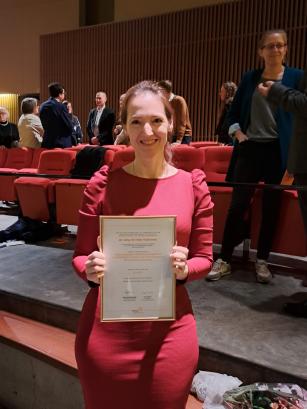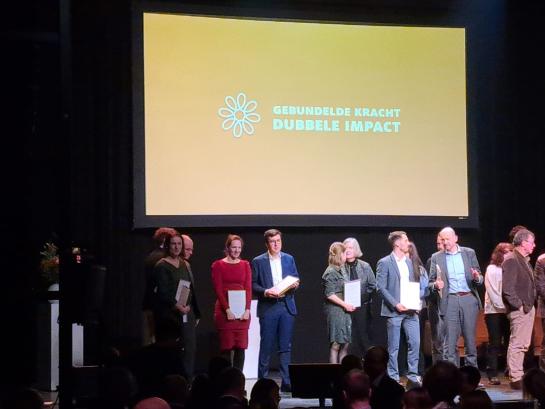Highlighting our researchers who received a grant to build up their research!

Dr. Prof Amy deHaar-Holleman will create PANSCREEN.
Pancreatic cancer is a very deadly disease characterized by the fact that it is often not detected until a late stage. Survival is best when the disease is diagnosed early and can still be completely removed by surgery, which unfortunately is the case in only 15% of patients. Therefore, to improve survival, early detection of pancreatic cancer will need to be addressed, something that is currently not routinely done in Belgium. Screening of high-risk individuals increases the frequency of detection and reduces the number of false-positive results. For this reason, we want to launch PANSCREEN. This screening program targets individuals with an increased risk of developing pancreatic cancer because they either have a genetic abnormality associated with an increased risk of developing pancreatic cancer or have at least two first-line relatives, i.e. a parent, child, brother or sister, with pancreatic cancer.
The seed money project's primary goal is to create the preconditions for a successful application for a prevention project to Kom Op Tegen Kanker in the future. To achieve this, the seed money project has 3 main goals:
1. Identifying the need for screening of the target group
2. Building a network for screening
3. The preparatory work for the PANSCREEN screening program.
Read into the details here.
While MD,PhD Gil Awada will optimise the treatment of early-stage triple negative breast carcinoma with a high number of tumor-infiltrating lymphocytes with his OPTImal project:
In the treatment of patients with early-stage triple negative breast carcinoma (TNBC), chemotherapy based on anthracyclines, cyclophosphamide, taxanes and carboplatinum (in combination with pembrolizunab for stage II-III TNBC) reduces the risk of relapse. However, chemotherapy is associated with significant short- and long-term side effects and decreased quality of life. In the treatment of stage I TNBC, the added value of adjuvant chemotherapy is less well established: most guidelines recommend administering chemotherapy for patients with T1cN0 TNBC and considering chemotherapy for patients with T1a/bN0 TNBC. There are currently no biomarkers we can use to individualize the treatment of early-stage TNBC (including stage I TNBC) nor are there biomarkers capable of predicting which patients with early-stage TNBC have excellent survival without chemotherapy.
Read into the details here.
Thanks to Kom Op Tegen Kanker!

